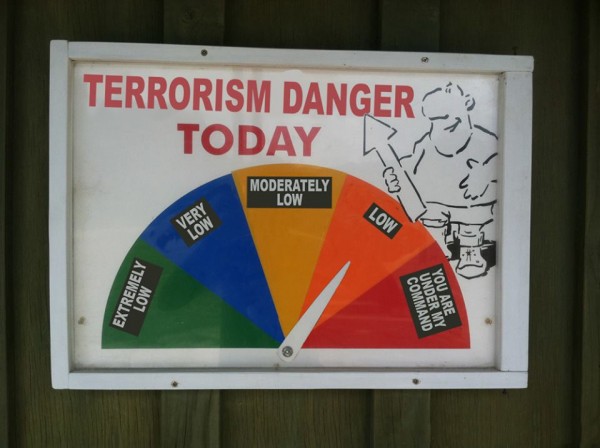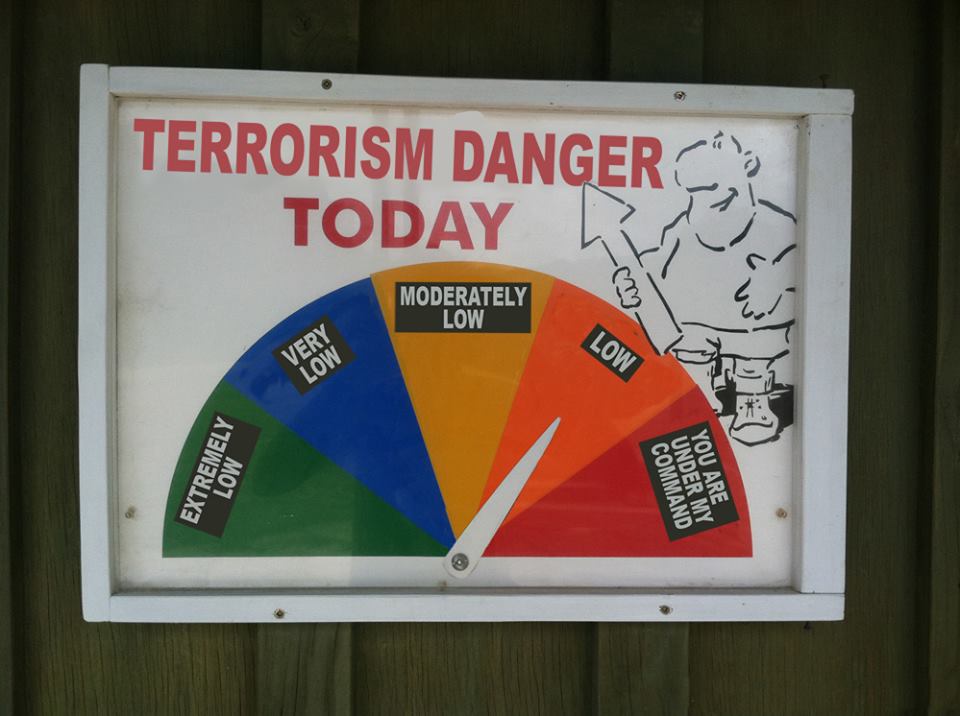
At Waitangi celebrating New Zealand’s ‘National day’, Prime Minister John Key made an impromptu case for sending ‘training’ forces to Iraq, citing the defence of human rights. In some ways he was right, none of us should ‘turn away’ from human rights abuses; whether they be in Iraq, Syria, Saudi Arabia, West Papua, Manus Island or Palestine. But the foreign policy of western nations, including New Zealand, seems more informed by ‘American Sniper’ than by the Universal Declaration of Human Rights. Sending troops to Iraq, for whatever purpose, unsanctioned by the United Nations, can only lead to trouble.
While Chris Kyle, (the ‘American Sniper’) may have been more the product of his culture than the driver of it, we should be wary of foreign policy based on simplistic, one-sided, arbitrary/political imperatives. When the ‘enemy’ is poorly defined as ‘Islam’, despite the differences within the religion, or ‘terrorism’, a term used to fit any number of settings in any number of countries including groups aspiring to statehood; when extrajudicial measures are used by world powers to enforce their will in far flung countries, peace can never be found. Let’s not ignore the call for human rights and dignity, but we shouldn’t at the same time justify or ignore other genocidal acts in the Middle East or elsewhere.
The American Sniper was motivated by ‘God, Country, and family’ a ‘higher moral cause’ that was vague enough to (self) justify the reported killing of more than 150 ‘suspects’ in their own land. But even the sniper had a closer view of his targets than those sitting behind consoles and computer screens directing drone strikes upon wedding parties, nomadic herders, and possibly, occasionally militants.
Recourse to simplistic symbols and straw men to justify invasion, long distance killing, in foreign lands by western forces is what caused the latest instability in the Middle East after all. -Civilisation and culture destroyed, a kind of peace – ruined, huge financial cost, women and children unnecessary victims. The case against the ‘axis of evil’ and non-existent Weapons of Mass Destruction and the resulting destabilisation of countries across the region should make us wary of more rhetorical justification for killing swarthy, bearded bogeymen.
Will more western-state sanctioned violence solve the problem of Middle Eastern anarchy when we disposed of the leaders who held those states together in the past? Will destroying ISIS make the region a safer place anyway – and if so, for whom or what? Does ‘doing our bit’ in the ‘war against terror’ necessarily mean we should re-enter the fray? If sending troops for whatever function (training?), is the cost of being in the ‘club’, and makes New Zealand complicit in an already ill-advised intervention, with the result that we’re more likely to be on the ‘terrorist’ radar both at home and abroad, shouldn’t we question that cost?
The modern ‘theatre of war’ is made for TV and social media. That somewhat explains the recourse to symbolism, rhetoric and hyperbole, where the images are increasingly sensationalised and over the top. Snuff movies as agitprop, aid workers and journalists as pawns (but no-one’s paying to set them free), staged beheadings captured on cellphones and broadcast via You Tube. Propaganda is a game that many can play. No wonder American Sniper is doing so well in the movie theatres. When this sort of art and artifice imitates life, truth is also a victim. We should question war as entertainment and as distraction from real agendas. It’s no substitute for robust long-game foreign policy or recognition of the universality of human rights. Otherwise it’s all just rhetoric.
Disclaimer
Christine Rose is employed as ‘Kauri dieback community co-ordinator’ in a contract role to the Auckland Council. All opinions expressed herein are Christine’s own. No opinion or views expressed in this blog or any other media, shall be construed as the opinion of the Council or any other organisation.






I don’t think you will find many people who believe its in the best interest of the region and its people for ISIS to remain in power. The Kurds/Iraq/Syria regaining their territory is the best option, and they need help. So I think it is perfectly acceptable for our troops to help in training and preparing the Iraqis, though of course direct military action where NZ lives are on the line require more consideration.
Also we should not forget that ISIS is our enemy too, they want to bring violence to the Western world. The larger they get and the more influence they gathering throughout the Middle East the bigger threat they become.
That is a very considered opinion Mat, and one that is impossible to disagree with.
Mats and Dan – the much more sensible, and less expensive (in terms of money and lives, and exposing ourselves to the inevitable staged terror attacks) would be to wait until the US goes belly-up later this year due to the Russians not wanting to play their lucrative war games.
That way, Israel won’t be able to afford to continue it’s genocidal policies towards Palestinians, and ISIS (or IS, IL, Islamic State, Daesh or whatever they are called by the marketing dept this month) won’t have anyone to fund their arms, training, regulation-issue black ninja gear and Bollywood quality videos starring the dastardly lord of evil from Dagenham, “Jihadi John” !
Oh, great article btw, Christine ! 🙂 xx
Comments are closed.